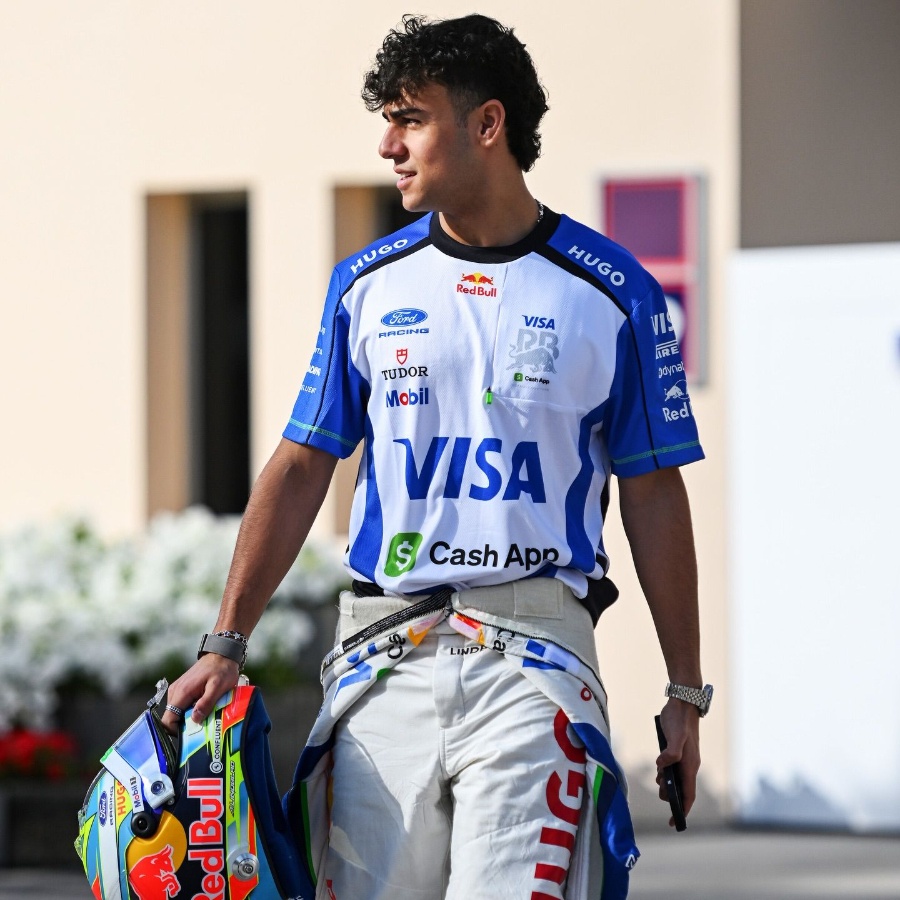One of the weirdest language trends Aleksic has tracked this year involves the word ‘clanker’. “People have been looking for slurs to call robots,” he says, “it's like this backlash against that kind of rising concern about artificial intelligence but it comes from the Star Wars fandom community” The word sounds exactly like the noise a bot might make, and the internet has gone wild with it. There are dozens of spin-offs, but Aleksic’s favourite is the meme where someone imagines their daughter bringing home a clanker in the future, only for the horrified parent to dramatically berate the poor bot. It is equal parts sci-fi, AI panic, and chaotic internet humour, which is exactly the kind of mash-up Aleksic lives for.
Dissecting Gen Z slang since 2023 has given Aleksic a superpower: he knows how quickly cool curdles into cringe. Being a creator means living in a permanent scroll state, eyes peeled for the next shiny slang nugget before it disappears. “If your grandmother is saying ‘skibidi’, it’s not gonna be funny anymore,” he deadpans. Slang now has the lifespan of a fruit fly in a heatwave. One week it’s a niche TikTok in-joke, the next it’s face-down in the graveyard of words, next to ‘bae’ and ‘on fleek’.
“I think the reason a word immediately loses appeal when an older generation is using it is because we see this slang coming from younger generations in the first place, because of their shared need to create an identity and to differentiate it from older people,” Aleksic explains. “Once adults become aware of this word, you are no longer part of the in-group and the word doesn’t have the same purpose of exclusivity.”
Thanks to social media, language shifts in the blink of an eye because all generations hang out in the same digital playgrounds of TikTok and Instagram. Your mom can peek at your “so true bestie” comment or catch the latest reels you watch; your online moves are pretty public. But not every word or phrase gets ditched when older folks adopt it. Terms like ‘cancel’ and ‘lowkey’ have slipped into everyday talk because they don’t sound totally ridiculous offline. No one’s throwing you a side-eye when you say them, since they fit right in. Aleksic points out that’s why Gretchen couldn’t make ‘fetch’ happen in Mean Girls. Some words are born to go viral, others…not so much.
For Aleksic, keeping pace with this churn isn’t optional; it’s his full-time job. “I feel fulfilled because this is the kind of work I really like doing,” he says. “I can take maybe a couple of days off when there is a need, but I just use my job as an excuse to learn more about language and studying trends.” When asked how he stays on top of the game, Aleksic says he relies on resources like Urban Dictionary and Twitter but is quick to acknowledge that a lot of his knowledge comes from his followers. They’re constantly sliding into his DMs with new words to decode and fresh internet trends.
During our conversation, Aleksic’s tone is slow and deliberate—a sharp contrast to his TikTok persona, where every video feels like it’s been shot out of a linguistic confetti cannon. It’s not accidental. He even calls out the phenomenon in the book: the internet has flattened our voices into a handful of algorithm-approved templates. “There’s this influencer accent now,” he writes, “Over time, creators have figured out that emphasising certain words helps videos perform better.” Aleksic admits to having an educational influencer accent that characteristically includes much faster and more energetic articulation.
You hear these accents everywhere: beauty influencers leaning into the Valley Girl lilt inspired by the Kardashians, every sentence punctuated with a question mark and a touch of vocal fry; fintech bros like Nikhil Kamath explaining market psychology, speaking in clipped, confident rhythms engineered for maximum LinkedIn repostability; and then there’s the MrBeast cadence, calibrated for adrenaline and retention stats.
Aleksic purposely keeps his online and offline selves separate. The high-speed patter is a social tactic, not personality. He’s fine with playing the game on camera but understands it’s performative. He declares he is not here to decide if this is tragic or normal; he’s more interested in documenting how people consciously and instinctively reshape themselves to please the algorithm.
And it’s not just our voices that get flattened. Aleksic points out that the internet sands down entire personalities into neat algorithm-friendly boxes. Want to go viral? Pick a label. We’ve had Hot Girl Summer, Brat Summer, Cottagecore aesthetic, Old Money aesthetic, Tomato Girl Summer, Coastal Grandma, Sardine Girl Summer and even Fermented Girl Autumn. It is part branding, part survival tactic. The more recognisable and niche your category, the faster the algorithm routes you. Many would argue that even Aleksic’s content falls under the umbrella of light academia.
It’s funny until you realise you’ve unconsciously edited your life to stay on-brand: picking outfits to match a label, buying candles that fit an aesthetic, wondering if your weekend plans are clean girl enough for the grid. Somewhere along the way, the algorithm isn’t just shaping language, it’s quietly editing us.
But Aleksic’s fascination doesn’t stop at slang evolution; he’s also intrigued by how censorship shapes language online. Platforms routinely deploy invisible tripwires to snip out “problematic” words, and people have become masters of creative evasions. To avoid shadow banning, sex becomes ‘s-e-g-g-s', Palestine gets a watermelon emoji, and Donald Trump gets dubbed as ‘cheeto’ or ‘orange man’. One especially interesting case Aleksic spotted this year is ‘bop’. "It originally was a slang word for promiscuous woman coming from, niche local African American English communities. But then it was repurposed as algo speak to refer to like OnlyFans creators,” he says. While bop missed the book deadline, it perfectly captures how language mutates under social media’s watchful eyes.
Aleksic is already deep into his next project, a book on media theory that will explore how social media regulates the way we feel. Which is why his advice on avoiding the algorithm’s trap hits harder. The way to keep yourself from getting stuck in one echo chamber, he says, is to mix your media diet—not just the kind of content you consume, but also the ‘how’ and ‘where’ of it. “You should be mixing different forms of media as much as possible, because each medium will uniquely constrain how we can communicate,” he says. “A book will constrain you to formal English and these layers of editors, while TikTok will constrain me to tell stories in short form, lightning format." Both have their limits. Books have gatekeepers and social media has algorithms, but together they can give you a fuller, more nuanced picture of the world.






